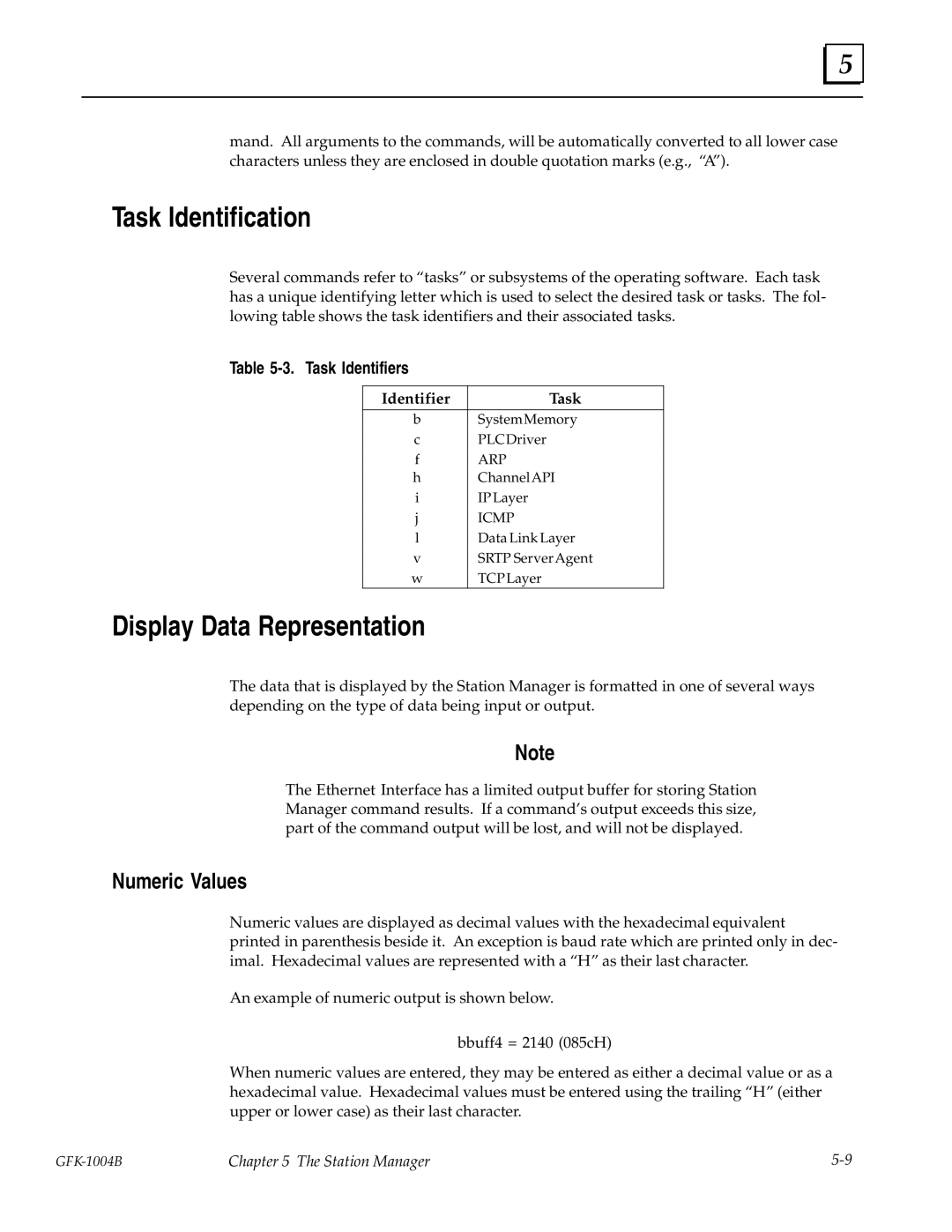
5 |
mand. All arguments to the commands, will be automatically converted to all lower case characters unless they are enclosed in double quotation marks (e.g., ªAº).
Task Identification
Several commands refer to ªtasksº or subsystems of the operating software. Each task has a unique identifying letter which is used to select the desired task or tasks. The fol- lowing table shows the task identifiers and their associated tasks.
Table 5-3. Task Identifiers
Identifier | Task | |
|
| |
b | SystemMemory | |
c | PLCDriver | |
f | ARP | |
h | ChannelAPI | |
i | IP Layer | |
j | ICMP | |
l | Data Link Layer | |
v | SRTP ServerAgent | |
w | TCPLayer |
Display Data Representation
The data that is displayed by the Station Manager is formatted in one of several ways depending on the type of data being input or output.
Note
The Ethernet Interface has a limited output buffer for storing Station Manager command results. If a command's output exceeds this size, part of the command output will be lost, and will not be displayed.
Numeric Values
Numeric values are displayed as decimal values with the hexadecimal equivalent printed in parenthesis beside it. An exception is baud rate which are printed only in dec- imal. Hexadecimal values are represented with a ªHº as their last character.
An example of numeric output is shown below.
bbuff4 = 2140 (085cH)
When numeric values are entered, they may be entered as either a decimal value or as a hexadecimal value. Hexadecimal values must be entered using the trailing ªHº (either upper or lower case) as their last character.
Chapter 5 The Station Manager |
